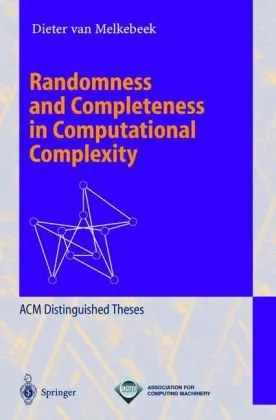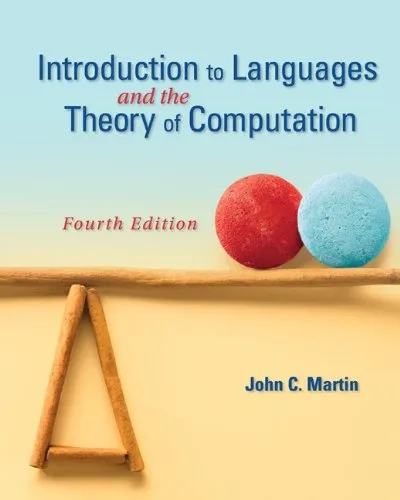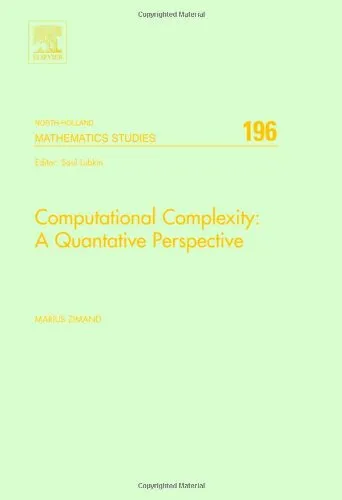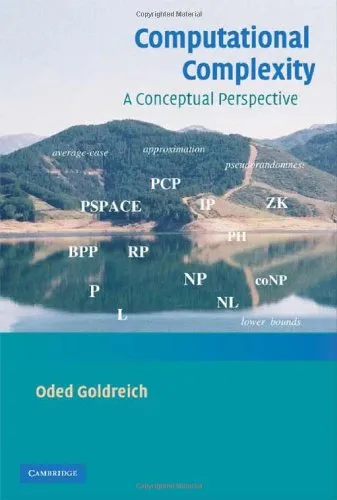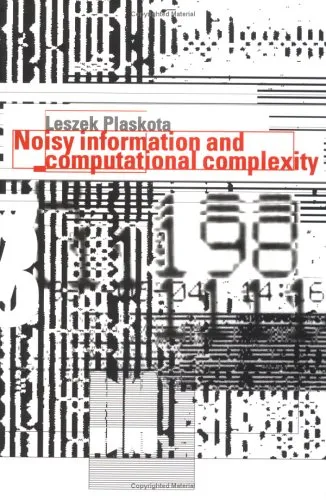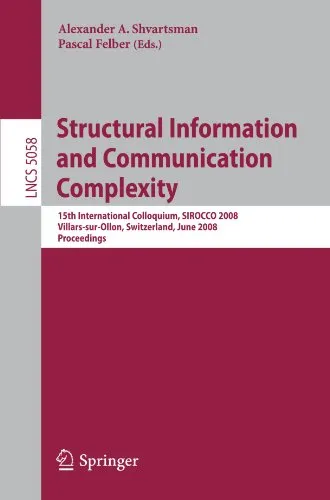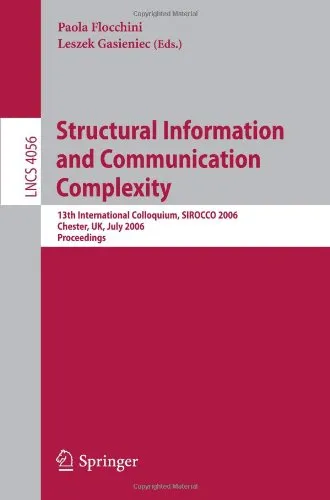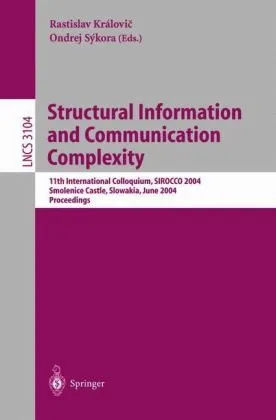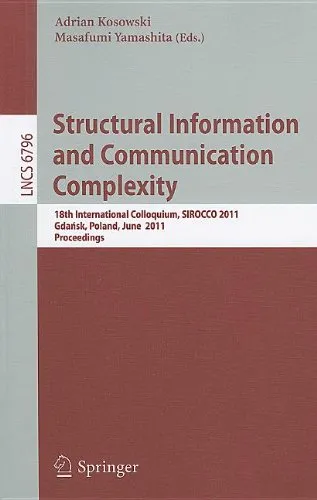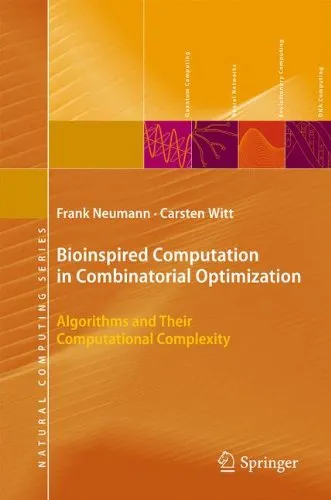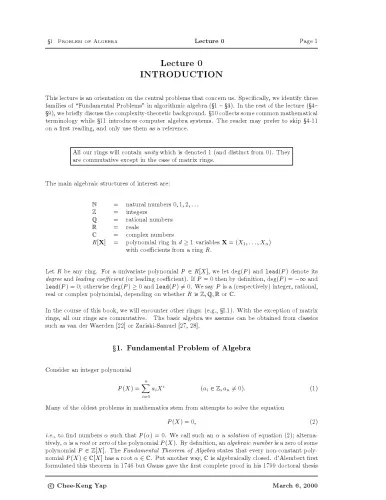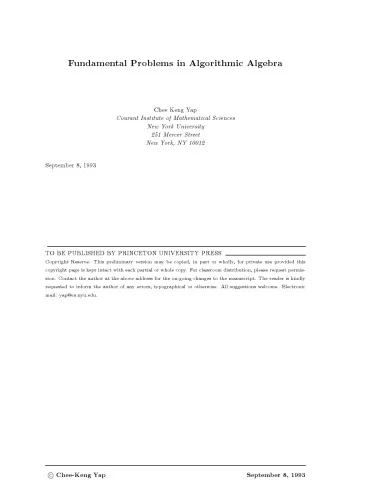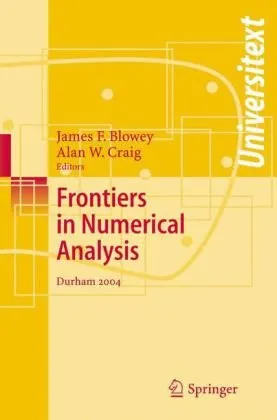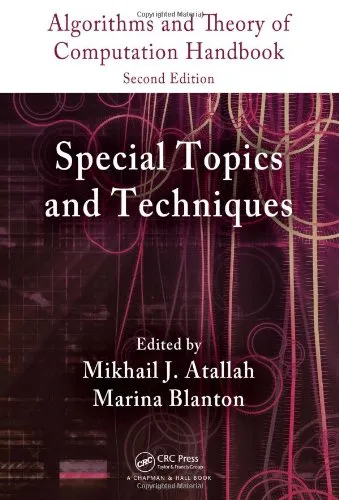Randomness and Completeness in Computational Complexity
4.5
Reviews from our users

You Can Ask your questions from this book's AI after Login
Each download or ask from book AI costs 2 points. To earn more free points, please visit the Points Guide Page and complete some valuable actions.Related Refrences:
Introduction to Randomness and Completeness in Computational Complexity
Welcome to the deep and dynamic world of computational complexity, where randomness meets elegance, and completeness offers profound insights into the nature of computation.
Detailed Summary of the Book
The journey through Randomness and Completeness in Computational Complexity offers an insightful exploration into one of computer science's most intriguing landscapes. Structured around key concepts, this book delves into the interplay between randomness and computational completeness, shedding light on central topics such as interactive proofs, probabilistic algorithms, and the boundaries of efficient computation.
The book comprehensively reviews the theoretical underpinnings of randomness in algorithms, examining how randomization can lead to quicker solutions for complex problems. It illustrates the transformation in understanding by addressing NP-completeness and the role of completeness in computational complexity. With a focus on completeness notions, the book elucidates the importance of these benchmark problems in determining the limits of what can be efficiently computed.
Through detailed exposition, examples, and rigorous proofs, readers are guided through the fields of probabilistic methods, pseudorandom generators, and zero-knowledge proofs. Each chapter builds on the previous, ensuring a cohesive and comprehensive understanding of how randomness both constrains and empowers computational paradigms.
Key Takeaways
- Understand the critical role of randomness in enhancing algorithm efficiency and effectiveness.
- Learn about the complexities involved in NP-completeness and other completeness classes.
- Grasp the impact of interactive proofs and zero-knowledge proofs on cryptographic protocols and computational theory.
- Discover the fundamental concepts behind pseudorandomness and its application in algorithms.
- Analyze deterministic versus probabilistic heuristics in solving computational problems.
Famous Quotes from the Book
"Randomness is not a luxury in computational complexity but a profound necessity that uncovers new horizons."
"The study of completeness is akin to mapping the uncharted territories of computation's ultimate capabilities."
"In the dance between randomness and determinism, computer science finds its most elegant steps and most complex rhythms."
Why This Book Matters
In the ever-evolving field of computational complexity, Randomness and Completeness in Computational Complexity stands as a pivotal work that bridges theoretical foundations with practical implications. It matters because it encapsulates the core challenges and theoretical breakthroughs that define modern computation. This book is essential for scholars, students, and professionals who seek to understand the deep relationships between randomness and determinism in algorithm design and complexity theory.
By offering clear explanations and insightful analyses of completeness classes, this work enhances the reader's ability to design algorithms capable of solving complex problems and understanding the computational universe's outer limits. Moreover, the book's emphasis on interactive proofs and zero-knowledge proofs highlights its relevance to cryptography and secure computation, making it an indispensable resource in today's digital age.
Embrace the challenge and dive into the rich and intricate world of randomness and completeness. This book is a gateway to exploring the limitations and potential of computational complexity, encouraging a deeper comprehension that is crucial for technological advancement and innovation.
Free Direct Download
You Can Download this book after Login
Accessing books through legal platforms and public libraries not only supports the rights of authors and publishers but also contributes to the sustainability of reading culture. Before downloading, please take a moment to consider these options.
Find this book on other platforms:
WorldCat helps you find books in libraries worldwide.
See ratings, reviews, and discussions on Goodreads.
Find and buy rare or used books on AbeBooks.
1384
بازدید4.5
امتیاز0
نظر98%
رضایتReviews:
4.5
Based on 0 users review
Questions & Answers
Ask questions about this book or help others by answering
No questions yet. Be the first to ask!
